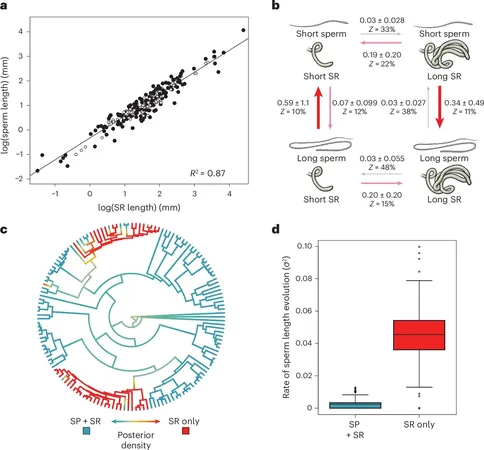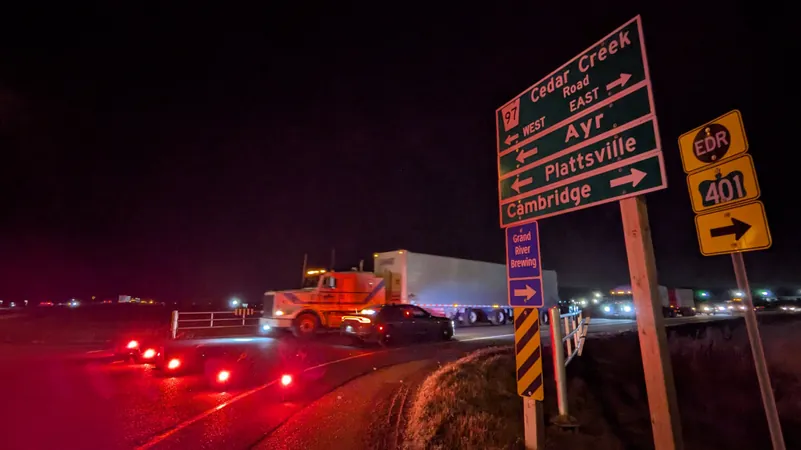
Alberta Takes a Stand Against Federal Overreach with Impact Assessment Act Challenge
2024-11-29
Author: Jacob
Overview of Alberta's Legal Challenge
In a bold move reflecting ongoing tensions between provincial and federal authorities, the Alberta government has officially requested the Alberta Court of Appeal to evaluate the constitutionality of the newly amended federal Impact Assessment Act (IAA). The timing of this request coincides with a series of unresolved issues highlighted by the Supreme Court concerning the act’s original provisions that impeded Alberta's jurisdiction.
Criticism of the Original IAA
The original IAA, often referred to as IAA 1.0, faced significant criticism for overstepping provincial boundaries. Under the act, Environment Minister Steven Guilbeault held the power to veto numerous infrastructure projects across Canada, including those operating entirely within provincial territories, like oil pipelines, roads, and resource extraction sites. Critics called this jurisdictional overreach a form of 'jurisdictional blindness,' arguing that it gave the federal government unwarranted control over local initiatives.
Skepticism Over IAA 2.0
Even with the introduction of IAA 2.0, Alberta politicians are expressing skepticism about the act's improvements. Although the new version adopts a different phrasing concerning project impacts—replacing vague terms with 'non-negligible adverse changes'—many believe these adjustments are merely cosmetic. Alberta's Justice Minister, Mickey Amery, underscored this concern, stating that the lack of precise definitions in the amendments could result in even wider federal interference in critical provincial projects.
Federal Government's Response
In an interview, Amery pointedly criticized the federal response to Alberta’s requests for clearer guidelines and reduced discretionary power for Guilbeault. 'When a government merely adjusts definitions without substantive change after a ruling from the highest court, it demonstrates a profound disregard for the rule of law,' he asserted.
Provincial Assessments under IAA 2.0
Further complicating matters is the fact that while IAA 2.0 theoretically allows for provincial assessments in lieu of federal ones, it is tethered to a stringent checklist of requirements. Critics argue this essentially keeps provincial action under federal thumb, with the added concern that the minister retains authority to halt provincial assessments at any point.
The Stakes for Alberta
Despite Alberta's attempts to streamline its assessment processes, the federal government has been dismissive, with Minister Guilbeault accusing Premier Danielle Smith of merely playing to her party's base. This ongoing tussle is not new; it reflects years of friction over environmental regulations and jurisdictional boundaries—a conflict that has persisted since the IAA’s inception.
Alberta's Legal Strategy
The stakes are significant for Alberta, particularly as major infrastructure projects are put at risk under the current federal assessment scheme. Many companies have reportedly grown apprehensive about starting new ventures under these federal guidelines.
Conclusion and Future Outlook
What’s perhaps most noteworthy in this saga is Alberta's approach. While navigating legal fights, the province is acting within the framework of law, positioning itself as a serious contender in a broader conversation about governance. Unlike Saskatchewan, which has seen direct confrontations with the federal government over its carbon tax, Alberta is seeking a judicial avenue to resolve its grievances—an approach that maintains respect for legal processes.
As the situation develops, Alberta's ongoing challenge against the IAA not only underlines the complex relationship between provincial and federal powers but also serves as a barometer for the shifting dynamics in Canadian environmental policy and governance. Will Alberta find clarity through the courts, or will the federal government continue to tighten its grip on provincial affairs? Time will tell, but one thing is clear: this battle over jurisdiction is far from over.









 Brasil (PT)
Brasil (PT)
 Canada (EN)
Canada (EN)
 Chile (ES)
Chile (ES)
 España (ES)
España (ES)
 France (FR)
France (FR)
 Hong Kong (EN)
Hong Kong (EN)
 Italia (IT)
Italia (IT)
 日本 (JA)
日本 (JA)
 Magyarország (HU)
Magyarország (HU)
 Norge (NO)
Norge (NO)
 Polska (PL)
Polska (PL)
 Schweiz (DE)
Schweiz (DE)
 Singapore (EN)
Singapore (EN)
 Sverige (SV)
Sverige (SV)
 Suomi (FI)
Suomi (FI)
 Türkiye (TR)
Türkiye (TR)